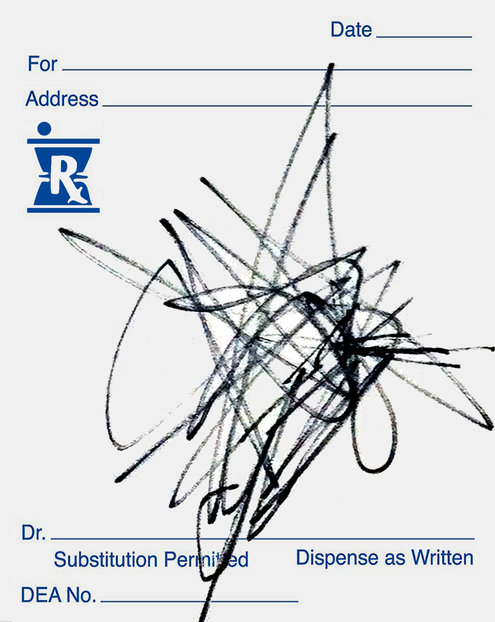- Joined
- Nov 11, 2012
- Messages
- 1,945
- Reaction score
- 1,203
The Opinion Pages | OP-ED CONTRIBUTOR[/paste:font]
Adventures in ‘Prior Authorization’
By DANIELLE OFRIAUG. 3, 2014
Photo

CreditScott Menchin
Continue reading the main storyShare This Page
Adventures in ‘Prior Authorization’
By DANIELLE OFRIAUG. 3, 2014
Photo

CreditScott Menchin
Continue reading the main storyShare This Page
- Continue reading the main story
RECENT COMMENTS
One study estimated that on average, prior authorization requests consumed about 20 hours a week per medical practice: one hour of the doctor’s time, nearly six hours of clerical time, plus 13 hours of nurses’ time. Other studies have suggested that prior authorizations could cost individual practices tens of thousands of dollars a year.
The letter in my hand concerned one of my patients, Mr. V., who suffers from stubborn hypertension. His chart is a veritable tome, documenting the years of effort it took to find the combination of four different blood-pressure medications that controls his hypertension without upsetting his diabetes, kidney disease and valvular heart disease or making his life miserable from side effects. We’ve been on stable ground for a few years now, a state neither of us takes for granted.
But Mr. V. had changed insurance companies, and now one of his medications required a prior authorization. The last thing I wanted was for him to be turned away at his pharmacy and have his blood pressurespiral out of control, so I called right away to sort things out.
Twenty minutes of phone tree later, I discovered that the problem was that I had exceeded a pill limit for one of his medications. Mr. V. needed to take 90 of those pills each month for the high dosage that his blood pressure required. I patiently explained this to the customer-care representative.
Equally patiently, she told me that 45 pills a month was the maximum allowed for this particular medication.
Three more phone trees and three more customer-care representatives later, my patience was flagging. Apparently a request for 90 pills was flummoxing the system. Representative No. 4 asked me to list all the blood-pressure medications that Mr. V. had been on in the past, including dates of initiation and relevant lab values, a request of epic proportions in his case.
The representative went down her checklist. “Would taking 45 pills per month instead of 90 pills adversely affect Mr. V.’s health?” she asked.
At first I thought she was joking. “Well,” I replied, “it would probably make his blood pressure shoot up in the second half of the month.”
She paused, then asked her next question with the encouraging uplift of suggestion. “Has Mr. V. ever tried 45 pills per month instead of 90 pills?”
Then I realized that she was not joking. “Are you out of your mind?” I hollered into the phone. “It’s taken years — years! — to find the right combination of meds to control his blood pressure without killing his kidneys or making him dizzy or nauseated or depressed or ruining his libido or running his potassium off the charts or breaking his bank account. Do you really think I’m going to randomly jiggle the dosages just for the hell of it?”
“A simple yes or no will suffice, doctor.”
Prior authorization clearly saves money for the insurance companies, at least up front. Many physicians simply give in, because the process is just too arduous.
But prior authorization ultimately ends up costing the health care system. The time and money that medical practices devote to prior authorizations could surely be put to better use for patient care. And it’s not even clear that insurance companies save money in the long run.One study examined the records of more than 4,000 patients with Type 2 diabetes who were prescribed medications requiring prior authorizations. Those who were denied the medications had higher overall medical costs during the following year; not getting the medications probably worsened their conditions.
I bit my tongue for the remainder of my conversation with the insurance company, holding back long enough to obtain the prior authorization that would allow Mr. V. the 90 pills he needed each month. I tried not to break the phone when I finally slammed down the receiver.
I’m all for controlling medical costs and trying to apply rational rules to our use of expensive medications and procedures. But in the current system, everything seems to be in service of the corporate side of medicine, not the patient. The clinical rationale and the actual patient — not to mention the doctors and nurses involved in the care — are at best secondary concerns.
In the end, we were able to keep Mr. V.’s blood pressure under control. My blood pressure, however, was a different story.
Danielle Ofri, an associate professor at New York University School of Medicine, is the author of “What Doctors Feel: How Emotions Affect the Practice of Medicine.”
